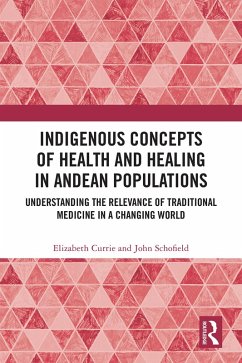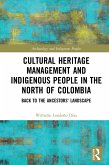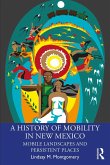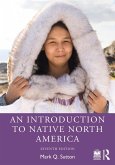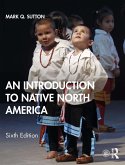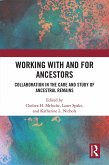Elizabeth Currie, John Schofield
Indigenous Concepts of Health and Healing in Andean Populations (eBook, ePUB)
Understanding the Relevance of Traditional Medicine in a Changing World
41,95 €
41,95 €
inkl. MwSt.
Sofort per Download lieferbar

21 °P sammeln
41,95 €
Als Download kaufen

41,95 €
inkl. MwSt.
Sofort per Download lieferbar

21 °P sammeln
Jetzt verschenken
Alle Infos zum eBook verschenken
41,95 €
inkl. MwSt.
Sofort per Download lieferbar
Alle Infos zum eBook verschenken

21 °P sammeln
Elizabeth Currie, John Schofield
Indigenous Concepts of Health and Healing in Andean Populations (eBook, ePUB)
Understanding the Relevance of Traditional Medicine in a Changing World
- Format: ePub
- Merkliste
- Auf die Merkliste
- Bewerten Bewerten
- Teilen
- Produkt teilen
- Produkterinnerung
- Produkterinnerung

Bitte loggen Sie sich zunächst in Ihr Kundenkonto ein oder registrieren Sie sich bei
bücher.de, um das eBook-Abo tolino select nutzen zu können.
Hier können Sie sich einloggen
Hier können Sie sich einloggen
Sie sind bereits eingeloggt. Klicken Sie auf 2. tolino select Abo, um fortzufahren.

Bitte loggen Sie sich zunächst in Ihr Kundenkonto ein oder registrieren Sie sich bei bücher.de, um das eBook-Abo tolino select nutzen zu können.
This book uses archaeology and ethnohistory to explore the evidence for the survival of ancestral beliefs and practices related to health and healing in Indigenous Andean communities.
- Geräte: eReader
- mit Kopierschutz
- eBook Hilfe
Andere Kunden interessierten sich auch für
![Indigenous Concepts of Health and Healing in Andean Populations (eBook, PDF) Indigenous Concepts of Health and Healing in Andean Populations (eBook, PDF)]() Elizabeth CurrieIndigenous Concepts of Health and Healing in Andean Populations (eBook, PDF)41,95 €
Elizabeth CurrieIndigenous Concepts of Health and Healing in Andean Populations (eBook, PDF)41,95 €![Cultural Heritage Management and Indigenous People in the North of Colombia (eBook, ePUB) Cultural Heritage Management and Indigenous People in the North of Colombia (eBook, ePUB)]() Wilhelm Londoño DíazCultural Heritage Management and Indigenous People in the North of Colombia (eBook, ePUB)41,95 €
Wilhelm Londoño DíazCultural Heritage Management and Indigenous People in the North of Colombia (eBook, ePUB)41,95 €![A History of Mobility in New Mexico (eBook, ePUB) A History of Mobility in New Mexico (eBook, ePUB)]() Lindsay M. MontgomeryA History of Mobility in New Mexico (eBook, ePUB)39,95 €
Lindsay M. MontgomeryA History of Mobility in New Mexico (eBook, ePUB)39,95 €![An Introduction to Native North America (eBook, ePUB) An Introduction to Native North America (eBook, ePUB)]() Mark Q. SuttonAn Introduction to Native North America (eBook, ePUB)100,95 €
Mark Q. SuttonAn Introduction to Native North America (eBook, ePUB)100,95 €![Working as Indigenous Archaeologists (eBook, ePUB) Working as Indigenous Archaeologists (eBook, ePUB)]() Working as Indigenous Archaeologists (eBook, ePUB)45,95 €
Working as Indigenous Archaeologists (eBook, ePUB)45,95 €![An Introduction to Native North America (eBook, ePUB) An Introduction to Native North America (eBook, ePUB)]() Mark Q. SuttonAn Introduction to Native North America (eBook, ePUB)100,95 €
Mark Q. SuttonAn Introduction to Native North America (eBook, ePUB)100,95 €![Working with and for Ancestors (eBook, ePUB) Working with and for Ancestors (eBook, ePUB)]() Working with and for Ancestors (eBook, ePUB)41,95 €
Working with and for Ancestors (eBook, ePUB)41,95 €-
-
-
This book uses archaeology and ethnohistory to explore the evidence for the survival of ancestral beliefs and practices related to health and healing in Indigenous Andean communities.
Dieser Download kann aus rechtlichen Gründen nur mit Rechnungsadresse in A, B, BG, CY, CZ, D, DK, EW, E, FIN, F, GR, HR, H, IRL, I, LT, L, LR, M, NL, PL, P, R, S, SLO, SK ausgeliefert werden.
Produktdetails
- Produktdetails
- Verlag: Taylor & Francis
- Erscheinungstermin: 29. August 2024
- Englisch
- ISBN-13: 9781040110522
- Artikelnr.: 72282660
- Verlag: Taylor & Francis
- Erscheinungstermin: 29. August 2024
- Englisch
- ISBN-13: 9781040110522
- Artikelnr.: 72282660
- Herstellerkennzeichnung Die Herstellerinformationen sind derzeit nicht verfügbar.
Elizabeth Currie is currently a research associate with the Department of Archaeology, University of York (UK). For the MEDICINE project, Elizabeth was Marie Sklodowska-Curie Experienced Researcher and Global Fellow and Senior Visiting Fellow with the Department of Health Sciences, University of York. Elizabeth has regularly worked across disciplinary and methodological boundaries throughout her rich and varied career consisting of two principal trajectories: South American archaeology and anthropology, and health sciences and health workforce. More recently, she developed her lifelong interests in ethnographic and ethnohistorical study of Latin America during which period she lived and worked with Indigenous Andean communities in Ecuador, researching Andean traditional culture and ethnomedicine. Her interests include psychological approaches to human behaviour and construction of identity as seen through material culture, and in expressions of Indigenous cosmology, being and beliefs, especially with societies practising shamanistic religions. The impact of enforced evangelisation to Christian religion upon non-Christian Indigenous societies with autochthonous expressions of beliefs through the study of mythos is a particular interest. Elizabeth is now pursuing her latest interests in the Himalayan region of India and Nepal, studying the ancient mystical traditions of Indian theology.
John Schofield is Director of Studies in Cultural Heritage Management in the Archaeology Department at the University of York (UK). Following a PhD in prehistoric archaeology at Southampton University, John spent 21 years in policy, heritage protection and research leadership with one of the UK's lead heritage agencies, English Heritage (that part now known as Historic England). During this time, he developed an active research interest in contemporary archaeology as well as recognising the need for both archaeology and cultural heritage practices to be more relevant to the contemporary world and also more socially engaged. John was appointed to the University of York in 2010, going on to serve as Head of Archaeology from 2012 to 2018. John holds adjunct positions at Griffith and Flinders universities (Australia) and is Docent in Contemporary Archaeology and Cultural Heritage at the University of Turku (Finland). John is a fellow of the Society of Antiquaries of London, a corresponding fellow of the Australian Academy of the Humanities and a member of the Chartered Institute for Archaeologists. John has published extensively on a diversity of topics relating to cultural heritage and contemporary archaeology. He has previously served as Executive Editor of the Taylor and Francis journal World Archaeology.
John Schofield is Director of Studies in Cultural Heritage Management in the Archaeology Department at the University of York (UK). Following a PhD in prehistoric archaeology at Southampton University, John spent 21 years in policy, heritage protection and research leadership with one of the UK's lead heritage agencies, English Heritage (that part now known as Historic England). During this time, he developed an active research interest in contemporary archaeology as well as recognising the need for both archaeology and cultural heritage practices to be more relevant to the contemporary world and also more socially engaged. John was appointed to the University of York in 2010, going on to serve as Head of Archaeology from 2012 to 2018. John holds adjunct positions at Griffith and Flinders universities (Australia) and is Docent in Contemporary Archaeology and Cultural Heritage at the University of Turku (Finland). John is a fellow of the Society of Antiquaries of London, a corresponding fellow of the Australian Academy of the Humanities and a member of the Chartered Institute for Archaeologists. John has published extensively on a diversity of topics relating to cultural heritage and contemporary archaeology. He has previously served as Executive Editor of the Taylor and Francis journal World Archaeology.
